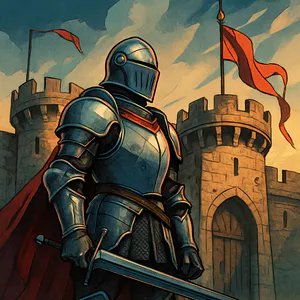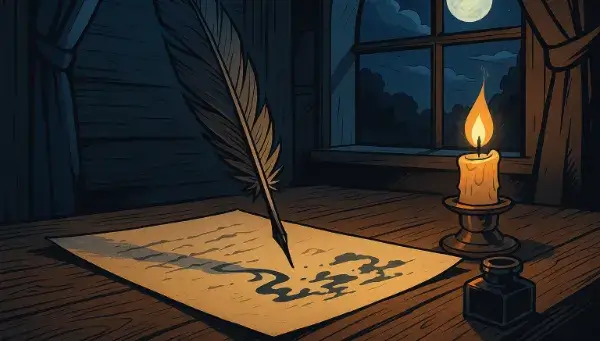Generate knight names
More Fantasy Name Generators- <% result.name %>
Discover all Story Shack apps
Bidding Honor to Your Knight
To craft a knight’s name, consider:
- Which title—Sir, Lady, Lord—suits?
- Do you want a valorous epithet?
- Should the surname hint at heraldry?
- How many syllables convey nobility?
- Will it inspire chivalry?
Knight Name FAQs
Answers for noble naming:
How are names generated?
They merge titles with valorous descriptors and noble surnames.
Can I choose title?
Regenerate until the desired title appears; no direct filter.
Are names historical?
They follow fantasy-chivalric conventions for authenticity.
How many names?
Unlimited—click for endless valor.
How do I copy or save?
Click a name to copy it, or click the heart icon to save it.
What are good knight names?
There's thousands of random knight names in this generator. Here are some samples to start:
- Hardwin the Invincible
- Josclyn the Dragonslayer
- Dru of the Winter
- Robbie the Muscle
- Rolph the Agile
- Jacquelyn the Dragonslayer
- Bette of the Mountain
- Elyscia the Shy
- Jaquelinne the Devoted
- Ysabel of the Night
About the creator
All idea generators and writing tools on The Story Shack are carefully crafted by storyteller and developer Martin Hooijmans. During the day I work on tech solutions. In my free hours I love diving into stories, be it reading, writing, gaming, roleplaying, you name it, I probably enjoy it. The Story Shack is my way of giving back to the global storytelling community. It's a huge creative outlet where I love bringing my ideas to life. Thanks for coming by, and if you enjoyed this tool, make sure you check out a few more!






























































